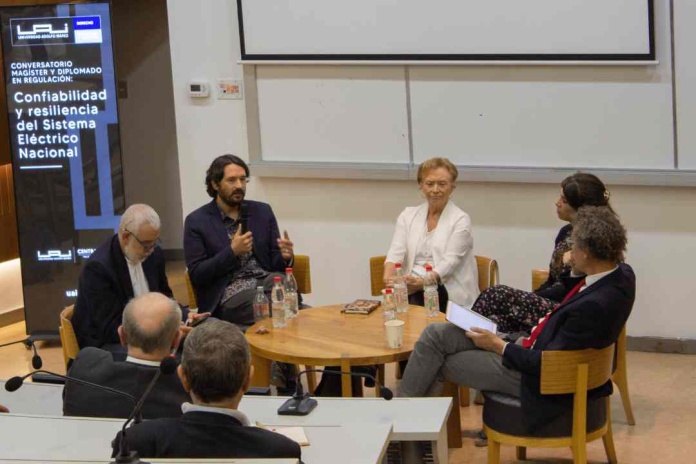Electrical system reliability: expert analysis of the February 25th blackout was discussed at the UAI 2025 panel discussion.
March 17, 2025
The discussion panel organized by the Faculty of Engineering and Sciences at UAI, in collaboration with the Faculty of Law, focused on a detailed analysis of the reliability and resilience of the national electrical system, using the February 25 blackout as a starting point. During the event, various experts conducted an in-depth examination of the causes of the failure and the challenges Chile’s electrical system faces in preventing future incidents.
According to Vivianne Blanlot, economist and former Minister of Defense, the blackout was not caused by a failure in physical infrastructure but by deficiencies in control, communication, and information systems. In her analysis, Blanlot emphasized that the transmitter’s system failed, preventing different operators from communicating effectively and quickly. She also pointed out that recommendations to improve system management had been issued four years ago, most of which have yet to be implemented.
Attorney Rodrigo Castillo, in turn, highlighted the need to enforce and oversee existing regulations. Castillo noted that since 2018, regulatory violations have been identified that, while not directly linked to the failures, require stricter supervision and effective penalties. He also stressed that the climate crisis has turned previously rare events into increasingly predictable phenomena.
Daniel Olivares, Director of Civil Engineering in Energy, contributed by stating that while the energy transition is inevitably complex, it also brings its share of failures. His analysis focused on the importance of minimizing the impact of interruptions and improving the system’s recovery capacity rather than attempting to eliminate failures entirely, given the dynamic nature of technological evolution and sector expansion.
Claudia Rahmann, Director of the Department of Electrical Engineering at the University of Chile, compared the Chilean electrical system to European networks. She highlighted that due to Chile’s vast geography and high proportion of renewable energy sources, any failure can have more critical effects than in robust, interconnected systems like those in Europe. According to her analysis, the system’s vulnerability is heightened by the country’s unique characteristics, spanning more than 3,000 kilometers.
Finally, Claudio Seebach, Dean of the Faculty of Engineering and Sciences at UAI and moderator of the discussion, emphasized the importance of learning from international experiences. His analysis included reviewing cases such as the blackout in the northeastern United States, the Argentine blackout, and the one in Italy 15 to 20 years ago, where recovery times ranged from 3 to 14 hours. Seebach raised the question of whether Chile’s recovery time was excessive and highlighted the need to strengthen the electrical system’s response capacity through close collaboration between the public, private, and academic sectors.
Overall, the experts’ analysis underscores that while system failures are, to some extent, inevitable, it is crucial to address deficiencies in control systems and regulatory enforcement, as well as to improve communication and coordination infrastructure. Only through an integrated and collaborative approach can Chile ensure greater resilience of its national electrical system against future critical events.

